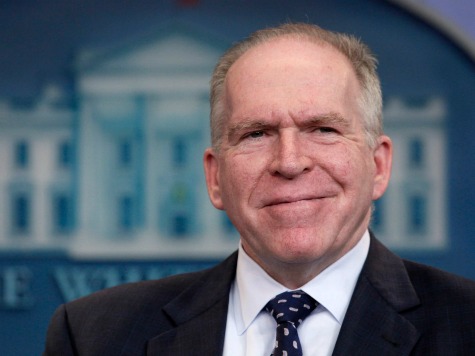John Brennan has already achieved a dubious distinction as Director of the Central Intelligence Agency: he has set the record for the largest number of “no” votes ever received by a nominee confirmed to that position.
Brennan was confirmed by the Senate on Mar. 7 by a vote of 63 to 34. The previous record for “no” votes had belonged to Robert Gates, who garnered 31 “no” votes en route to confirmation in late 1991. At that time, the record belonged to the president who appointed him, George H.W. Bush, who received 27 “no” votes in 1976.
Brennan was confirmed after a relatively short but contentious confirmation process in which he faced a last-minute, 13-hour filibuster by Sen. Rand Paul (R-KY) over the administration’s refusal to clarify its position on the domestic use of drone strikes on U.S. citizens. Brennan had overseen the administration’s drone program.
In 2008, Brennan had pulled out of the confirmation process because of concerns among Democrats about his knowledge of, and role in, the George W. Bush administration’s use of enhanced interrogation techniques with terror detainees–a practice that Brennan once supported but later came to oppose. In addition, Brennan’s confirmation was beset by questions about his role in politically-motivated leaks of information from the White House. He also faced questions about the administration’s response to the attack on the U.S. consulate in Benghazi, Libya in Sep. 2012. Conservatives also charged that Brennan had shown an obsequious approach to radical Islam–referring, for instance, to Jerusalem as “Al-Quds” and citing the word “jihad” approvingly.
Brennan is also the second CIA Director to be confirmed after withdrawing from an earlier confirmation process. Gates had withdrawn in 1987 due to questions about his role in the still-recent Iran-Contra scandal. His confirmation in 1991, as noted by a history on the CIA’s website, was troubled by the Iran-Contra legacy as well as by allegations that he had, while working within the CIA, spun intelligence favorably for President Reagan’s benefit. The Senate conducted an extensive investigation and hearing process.
George H.W. Bush faced a less grueling process in 1976, but one in which the CIA had fallen out of favor in Congress, and where his partisan loyalties were seen as problematic in the wake of the recent Watergate scandal.

COMMENTS
Please let us know if you're having issues with commenting.